 Your new post is loading...
 Your new post is loading...
Automation isn’t a simple struggle between people and technology, with the two sides competing for jobs. The more we rely on robots, artificial intelligence (AI), and machine learning, the clearer it’s become just how much we need social scientists and humanities experts–not the reverse. These four skills in particular are all unique to us humans, and will arguably rise in value in the coming years, as more and more companies realize they need the best of both worlds to unleash the potential from both humans and machines. AI and machine learning are extremely useful for solving straightforward, predictable problems and finding patterns no human would ever be able to spot in big data pools. But they’re less helpful in sussing out issues where it’s not a given what the problem actually consists of. Say a patient gradually stops taking her medication, and an algorithm picks up on that fall-off early on. That’s great, but you still need a human being to ask why and contextualize the reasons–with a full understanding of what it means to live with chronic illness. For instance, is the patient simply forgetting to take her medication, or actively choosing not to? Is there an alternative remedy that suits the patient’s priorities and lifestyle?
Via The Learning Factor
According to an Oxford University analysis, close to half of all jobs will be taken over by robots in the next 25 years. No wonder the press is full of handwringing about how workers will adjust and the best way to prepare the next generation for this A.I.-filled future. But not everyone is alarmed about the prospect of radical change in the labor market. After all, this has happened before (for instance, when mechanization replaced the vast majority of farmers) and it turned out OK. Plus, a lot of today's jobs are soul-crushingly boring and repetitive. Losing them just might be a blessing. Among these optimists are IT service company Cognizant. In a recent report (hat tip to Business Insider for the pointer), the consultancy notes that while creative destruction has always been with us, so has reinvention. Sure, robots will take jobs away, but they'll also create new ones. What will these new gigs look like exactly? The report imagines detailed job ads for 21 future careers that Cognizant thinks may emerge in the next 10 years.
Via The Learning Factor
Rapid technological advances in digitization and data and analytics have been reshaping the business landscape, supercharging performance, and enabling the emergence of new business innovations and new forms of competition. At the same time, the technology itself continues to evolve, bringing new waves of advances in robotics, analytics, and artificial intelligence (AI), and especially machine learning. Together they amount to a step change in technical capabilities that could have profound implications for business, for the economy, and more broadly, for society.
Via Kenneth Mikkelsen
Though 2016 may have felt like a tumultuous year, a variety of factors are poised to ripple through 2017, further disrupting business as usual. That's according to Brian Kropp, the human resources practice leader for CEB. The best practice insight and technology company that works with 20,000 senior leaders at 10,000 organizations worldwide gathered and analyzed internal and external data to look at broader trends that will influence the way we work next year. Kropp says major changes in public policy, technology, and employee demands will shape the challenges faced by business leaders and employees in the year to come. Among the key factors driving this change is one that stems from the 2008 financial crisis. Throughout the recovery period organizations of all shapes and sizes have had to learn how to do more with less, and are now unable to get much leaner.
Via The Learning Factor
Your job will probably be affected by automation, but the future isn't as bleak as it seems. Here's 5 steps to remain relevant and employed.
Via Kenneth Mikkelsen
|
The vast majority of humans throughout history worked because they had to. Many found comfort, value, and meaning in their efforts, but some defined work as a necessity to be avoided if possible. For centuries, elites in societies from Europe to Asia aspired to absolution from gainful employment. Aristotle defined a “man in freedom” as the pinnacle of human existence, an individual freed of any concern for the necessities of life and with nearly complete personal agency. (Tellingly, he did not define wealthy merchants as free to the extent that their minds were pre-occupied with acquisition.) The promise of AI and automation raises new questions about the role of work in our lives. Most of us will remain focused for decades to come on activities of physical or financial production, but as technology provides services and goods at ever-lower cost, human beings will be compelled to discover new roles — roles that aren’t necessarily tied to how we conceive of work today.
Via The Learning Factor
We may live in a digital world, but soft skills like communication, problem solving, collaboration, and empathy are becoming more valued than technology, says Paul Roehrig, chief strategy officer for Cognizant Digital Business, a business and technology service provider. “People skills are more and more important in an era where we have powerful and pervasive technology,” he says. “It sounds counterintuitive, but to beat the bot, you need to be more human.” When evaluating their hiring plans for 2017, 62% of employers rate soft skills as very important, according to CareerBuilder. But a recent survey by the Wall Street Journal found that 89% of executives are having a difficult time finding people with these qualities.
Via The Learning Factor
Running a business takes a lot of hard work and, usually, a lot of interaction with other people. For the introverts in the room, communicating with others on a daily basis can make a busy workday downright exhausting. Between sending emails, making phone calls, and communicating with customers and co-workers face-to-face, there's a lot of human interaction to be done throughout the day. Fortunately, there are ways you can automate your workday to minimize the number of times you have to directly connect with other people. Sure, you need to interact with your co-workers from time to time, but why stress out over low-priority interactions when you can essentially put them on autopilot? Not only will automation save you mental energy, it will also save time. The time that you spare yourself from meetings or phone calls can in turn be used in a more productive manner. Here are three simple ways you can start automating and become a more productive introvert.
Via The Learning Factor
We rely on computers to fly our planes, find our cancers, design our buildings, audit our businesses. That's all well and good. But what happens when the computer fails? No machine is infallible. Sooner or later, even the most advanced technology will break down, misfire, or, in the case of a computerized system, encounter circumstances that its designers never anticipated. As automation technologies become more complex, relying on interdependencies among algorithms, databases, sensors, and mechanical parts, the potential sources of failure multiply. They also become harder to detect.
Via Kenneth Mikkelsen
Automation will come both from advanced robotics in manufacturing and from computerization of complex analytical tasks. While this will be a boon for those companies’ bottom lines, it will likely be disastrous for existing or prospective employees if other avenues for employment don’t manifest.
Via Kenneth Mikkelsen
|



 Your new post is loading...
Your new post is loading...



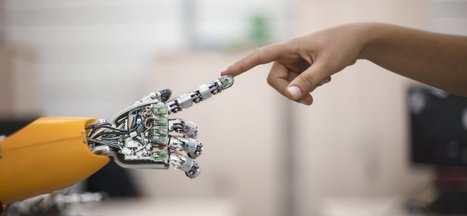

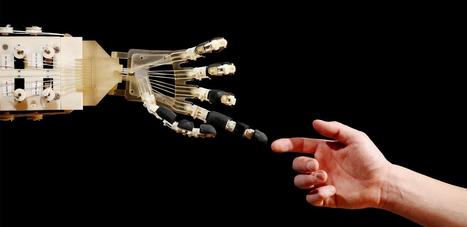


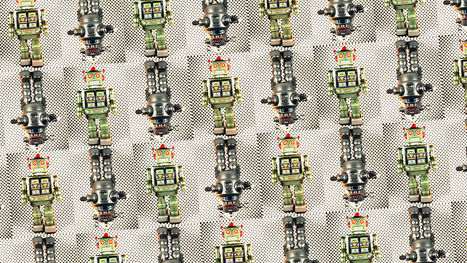
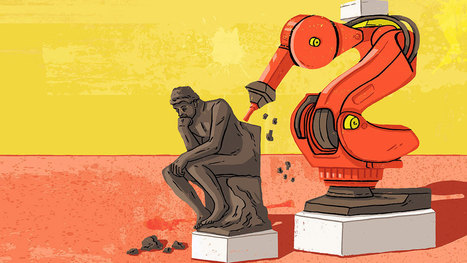


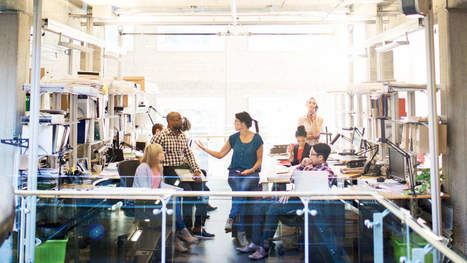

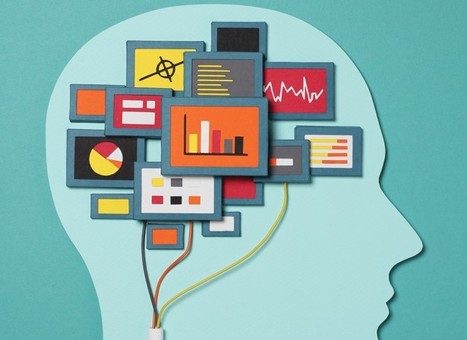
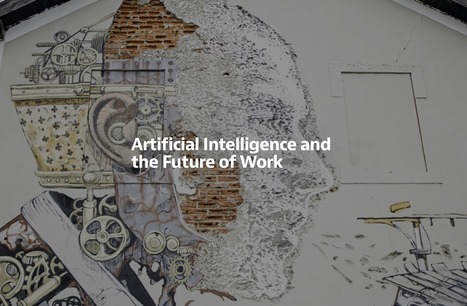





The more we rely on AI and machine learning, the more work we need social scientists and humanities experts to do.